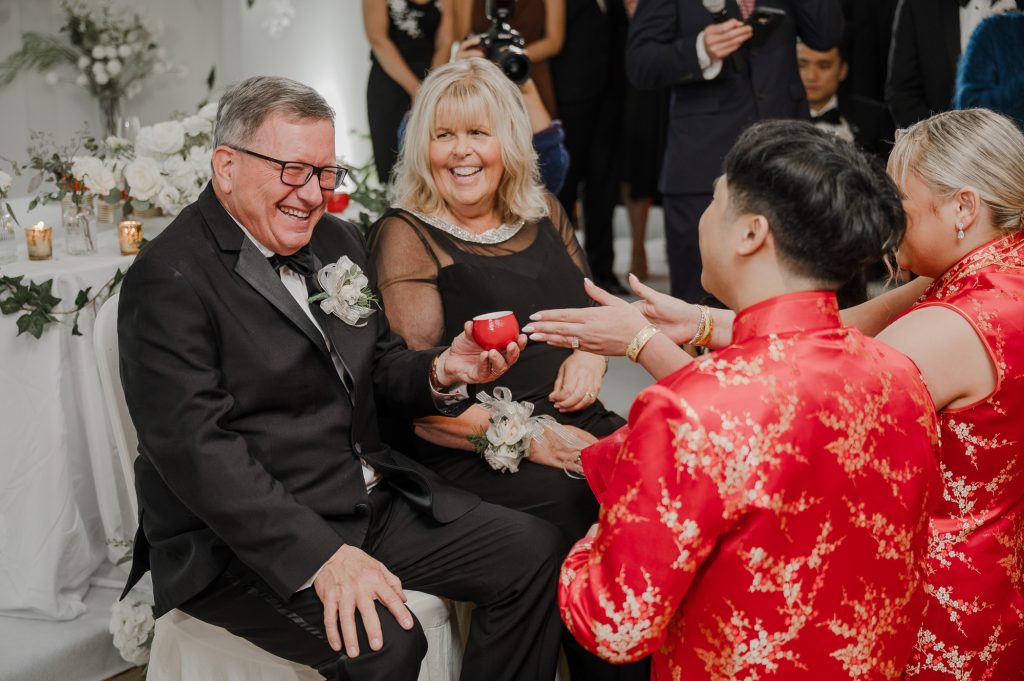Chinese weddings are a rich tapestry of tradition, culture, and symbolism, reflecting the values of family, respect, and harmony. For those attending a Chinese wedding, understanding the etiquette is essential to fully appreciate and participate in this meaningful event. Here’s a comprehensive guide to the key aspects of Chinese wedding etiquette:
Pre-Wedding Traditions
1. Betrothal Ceremony (過大禮)
The groom’s family presents gifts, often including tea, wine, and symbolic items like jewelry or red envelopes filled with money, to the bride’s family. This signifies respect and acceptance of the marriage proposal.
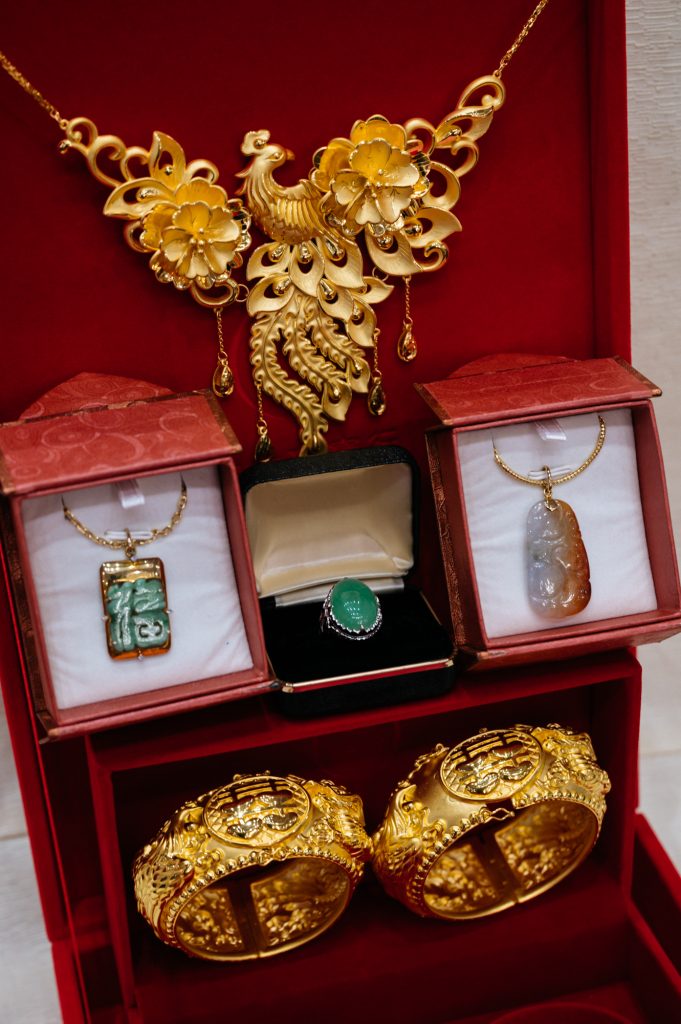
Wedding Day Customs
1. The Tea Ceremony (敬茶)
One of the most significant moments in a Chinese wedding is when the couple serves tea to their elders. This act is a gesture of gratitude and respect. In return, the elders present gifts, often red envelopes (紅包) filled with money or jewelry.
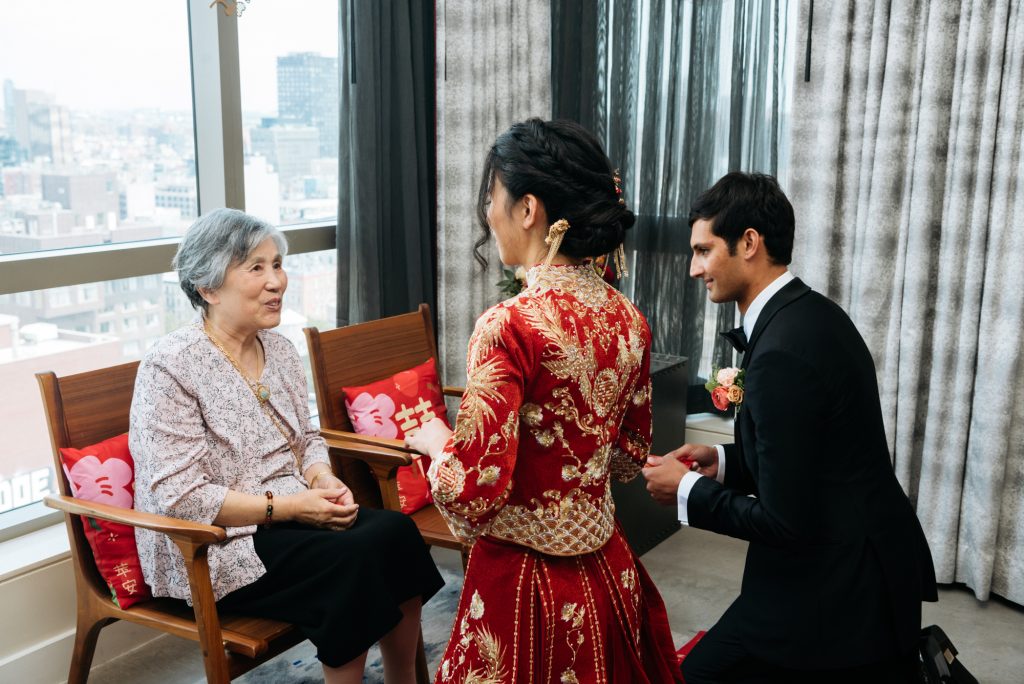
2. Bridal Door Games (接新娘)
Before the groom can meet the bride, he and his groomsmen must complete a series of fun challenges. These are often humorous and are set by the bridesmaids. This tradition symbolizes the groom’s determination to win over the bride.
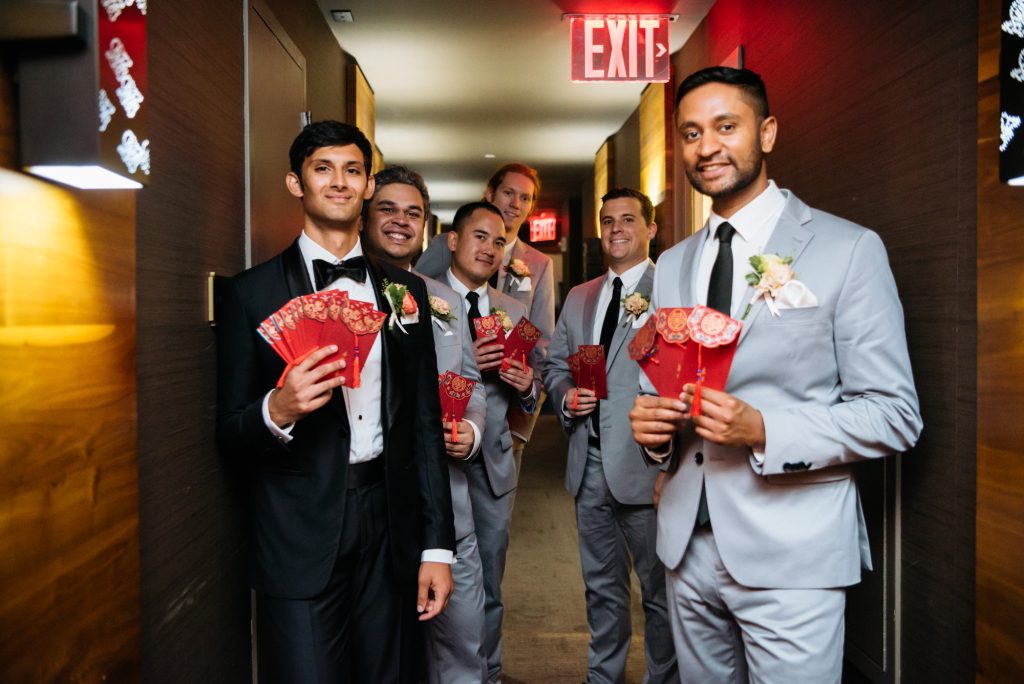
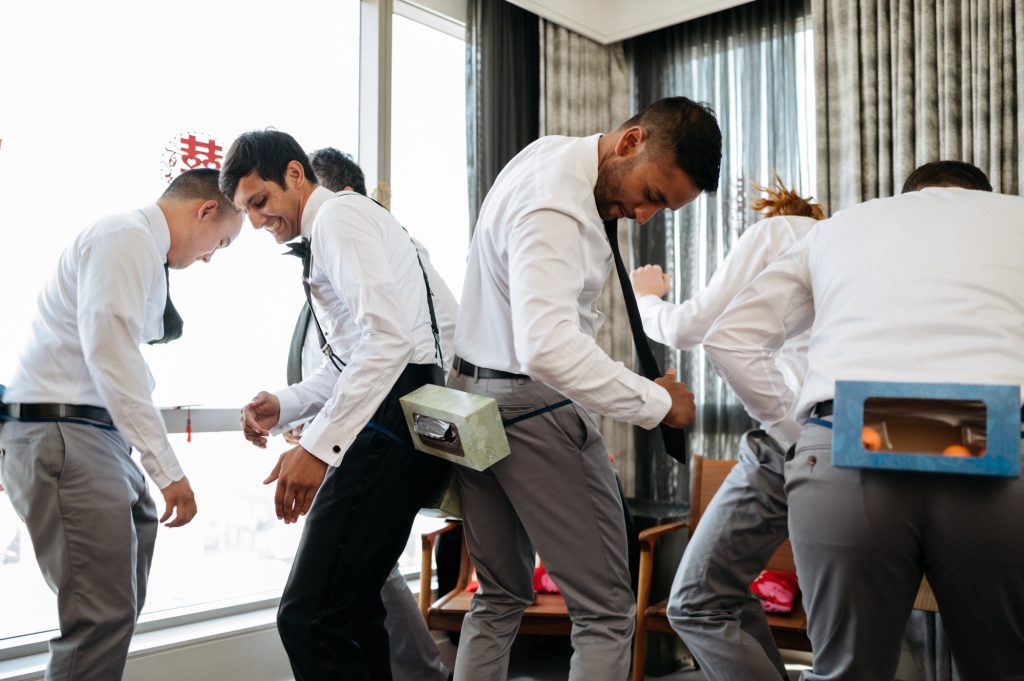
Guest Etiquette
1. Dress Code
Guests should avoid wearing white or black, as these colors are traditionally associated with mourning. Instead, opt for red or other bright colors to convey joy and celebration.
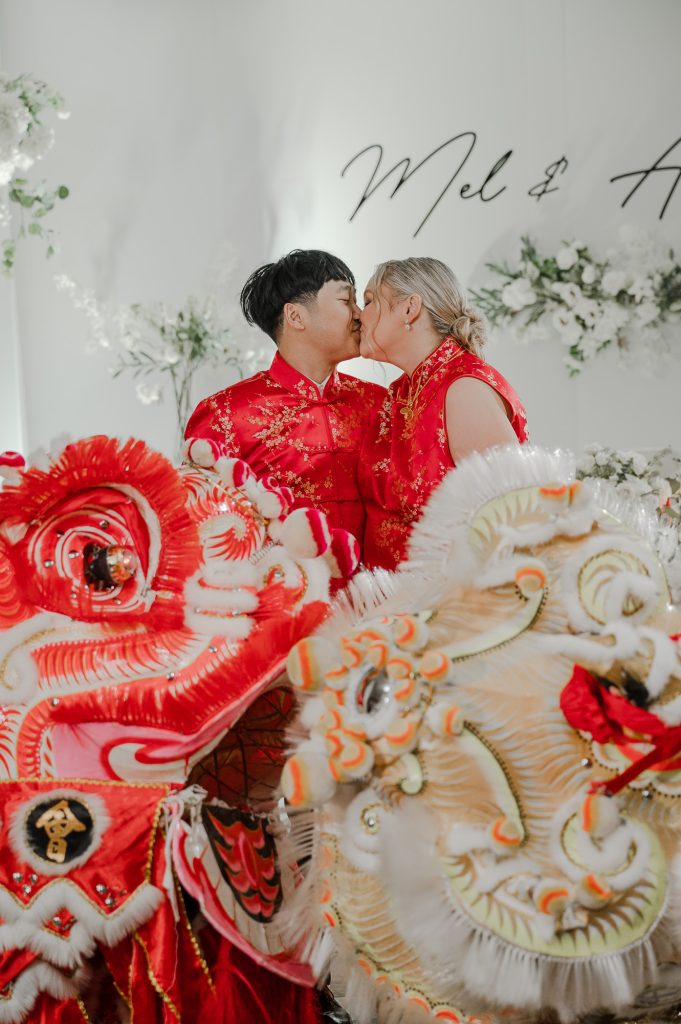
2. Red Envelopes (紅包)
Instead of physical gifts, guests typically give red envelopes filled with money. The amount should be an even number, as odd numbers are linked to funerals. Check local customs to confirm the amount is appropriate.
3. Timing
Punctuality is crucial. Arrive on time to honor the couple and their families, as lateness could be seen as disrespectful.
Post-Wedding Traditions
1. Return Banquet (回門宴)
A few days after the wedding, the bride and groom may host a smaller banquet. The event takes place at the bride’s family home. They do this to express gratitude to the bride’s relatives.
2. Double Happiness Symbol (囍)
The character 囍 is often displayed throughout the wedding and the couple’s new home. It symbolizes joy and the union of two families.
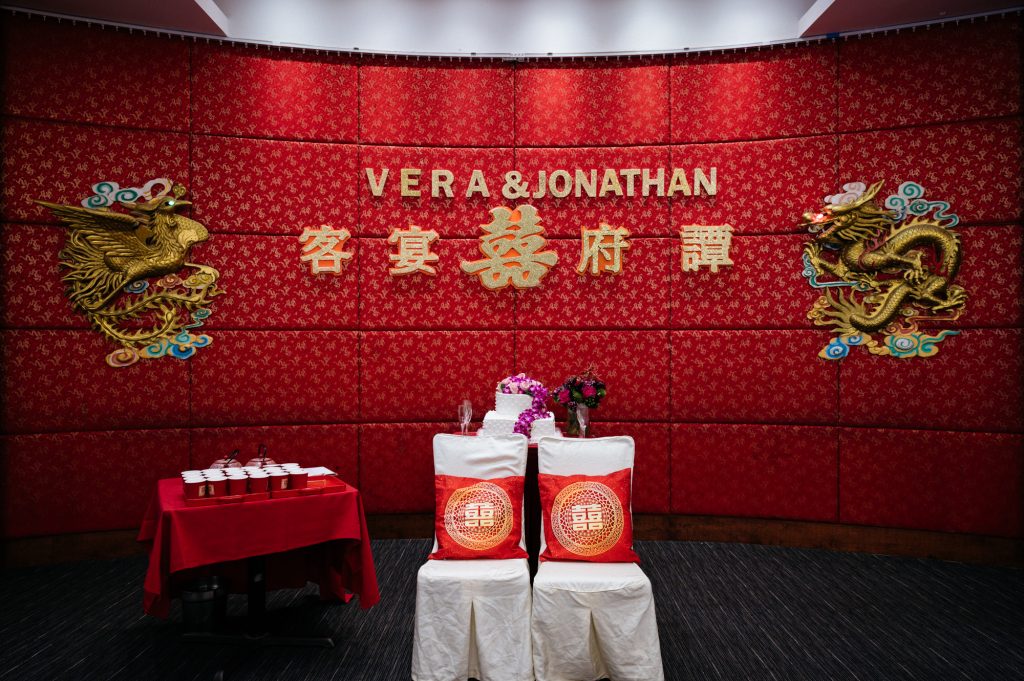
Symbolism and Superstitions
Chinese weddings are steeped in symbolism. For example:
• Red: Stands for happiness, prosperity, and good luck.
• Dragon and Phoenix: Symbolize balance and harmony, with the dragon representing the groom and the phoenix the bride.
• Avoiding Inauspicious Dates: Weddings are carefully scheduled based on the lunar calendar to guarantee good fortune.
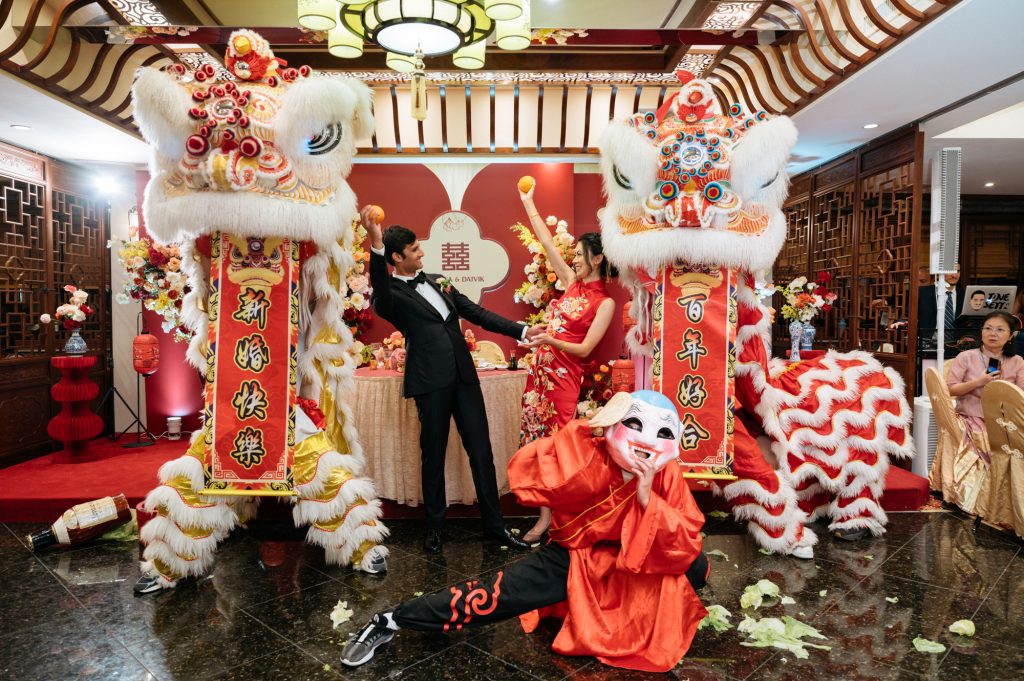
Conclusion
Chinese wedding etiquette is a reflection of the culture’s deep respect for family, tradition, and community. Whether you’re a guest or part of the wedding party, you should understand these customs. Honoring them will make the celebration even more meaningful. By embracing these traditions, you show respect. You also gain a deeper appreciation of the rich heritage they represent.
